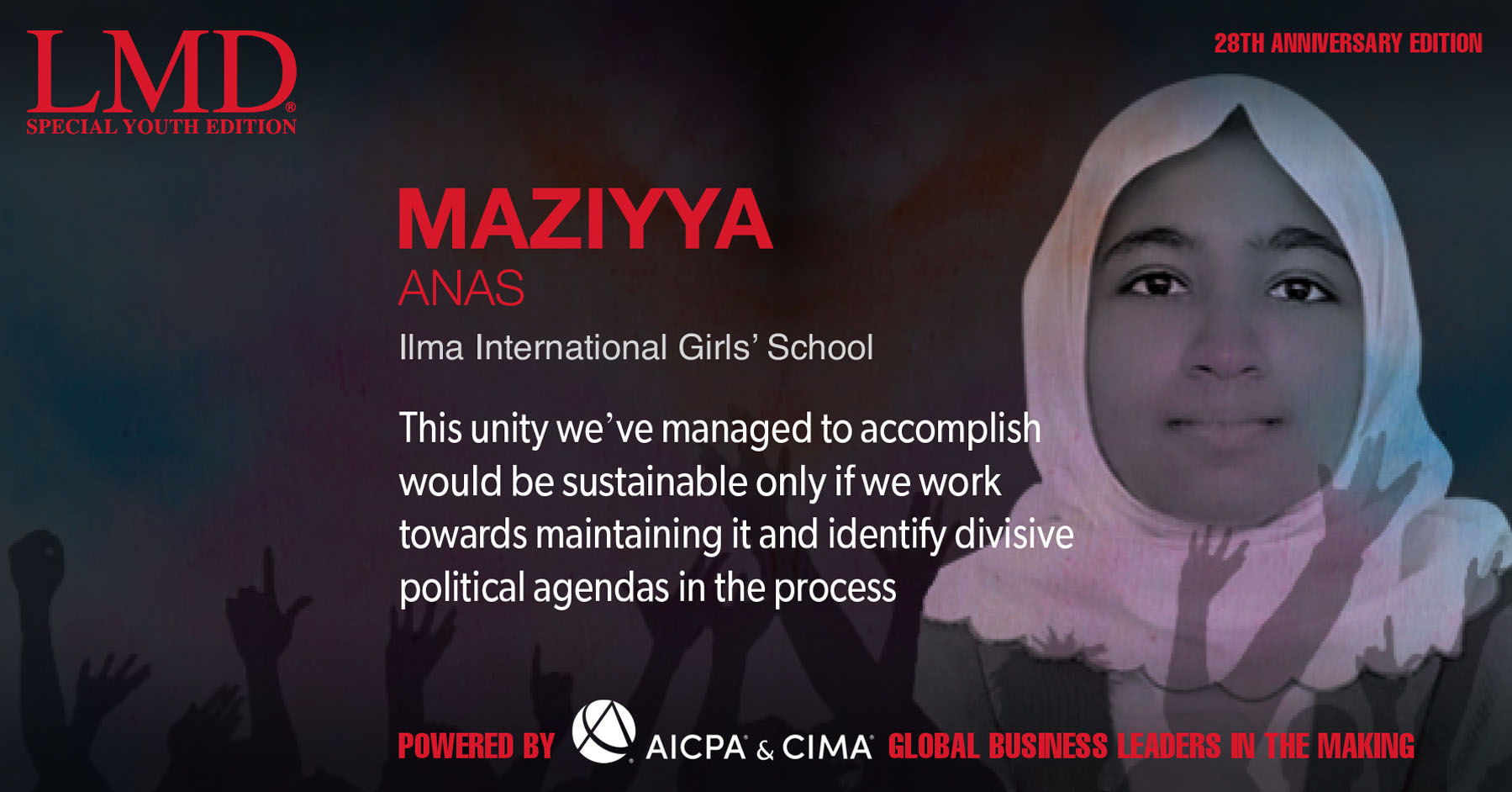
MESSAGE TO THE YOUTH
The voice of the youth can force change; use your voice, question your biases and be the change you wish to see.
SRI LANKA: FIVE BURNING ISSUES
Corrupt politicians
Lack of accountability for the influential
Not optimising available resources
Education system requiring reform
Digital divide
ROLE MODEL
No specific individual – I admire a number of people for their various traits.
SUMMARY
The current crisis has highlighted our responsibility as citizens to demand system changes, hold authorities accountable and go beyond divisive boundaries, to make both individual and collective efforts toward ensuring this nation’s prosperity.
Q: In your view, has the aragalaya led to a united Sri Lanka – and if so, is this unity sustainable?
A: It definitely has. This struggle goes beyond the boundaries of race and religion, and is one that most Sri Lankans relate to. There have been beautiful displays of unity among people of different communities at the protest sites, queues and elsewhere in the country.
Although there is a possibility that the positive changes brought forth by the aragalaya may dissipate when we no longer have the burning issue of survival at hand, I certainly think the impact of the conversations the aragalaya started will be lasting.
This unity we’ve managed to accomplish would be sustainable only if we work towards maintaining it and identify divisive political agendas in the process.
Q: As far as our education system goes, what are the pros and cons?
A: Free primary to tertiary education in this country is a massive blessing, which contributes to the high literacy rate. However, the education system simply focusses on academics with examinations promoting rote learning and fewer opportunities to develop other skills.
We are also yet to adapt to digitalisation and the use of technology optimally for learning. Further, the higher education system could benefit from a greater focus on courses of study that cater to the latest job demands in the local and global market.
Q: Do you see yourself remaining in Sri Lanka – or returning to Sri Lanka – or do you think it’s best to migrate?
A: The civil war in the past and the economic crisis in the present have resulted in brain drain, and the loss of valuable human resources, as people chose and continue to choose greener pastures abroad.
While it is up to each individual, we definitely need people who remain here and benefit the country. But that’s not to say that those who have left are not capable of doing their part from afar. Personally, I’ve never intended to migrate and have always had hopes of acquiring sufficient education, wealth and influence to serve the people of this country someday.
Q: Where do you see Sri Lanka in a decade from today?
A: Looking to the future, we could either be led into further ruin by incompetent rulers and a failing economy, or things could improve for the better due to the efforts of the people and administrative miracles.
I’m optimistic about the future and see a Sri Lanka that makes progress in every field, perhaps becoming agriculturally self-sufficient with a thriving economy and a better system of justice.
This will become a reality not only with the franchise of the people but also with the will power and dedication of every Sri Lankan to bring about positive change. The decisions we make today will build the Sri Lanka of tomorrow.

